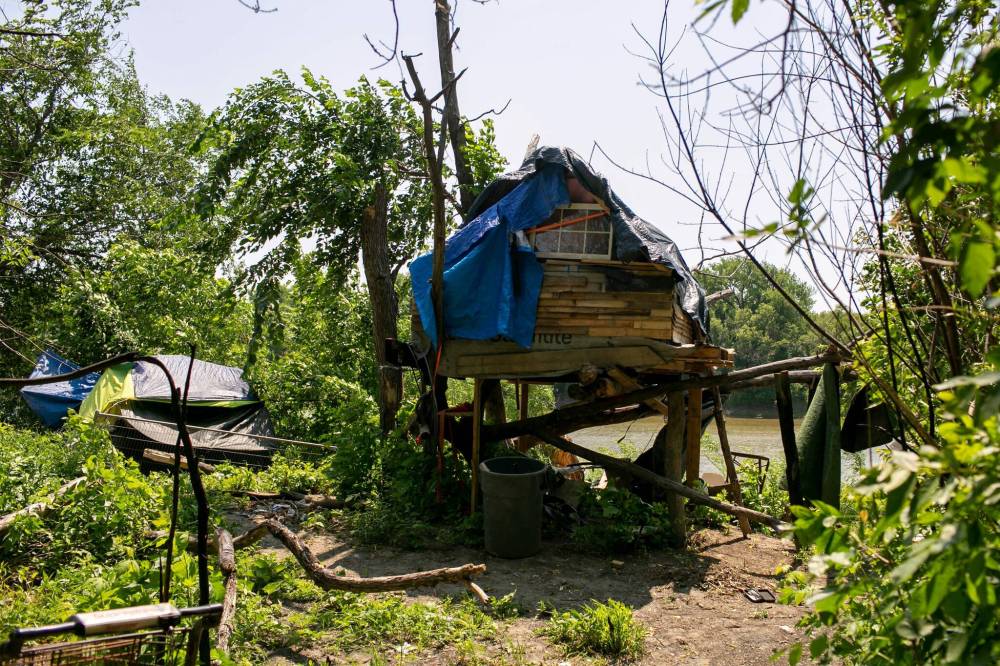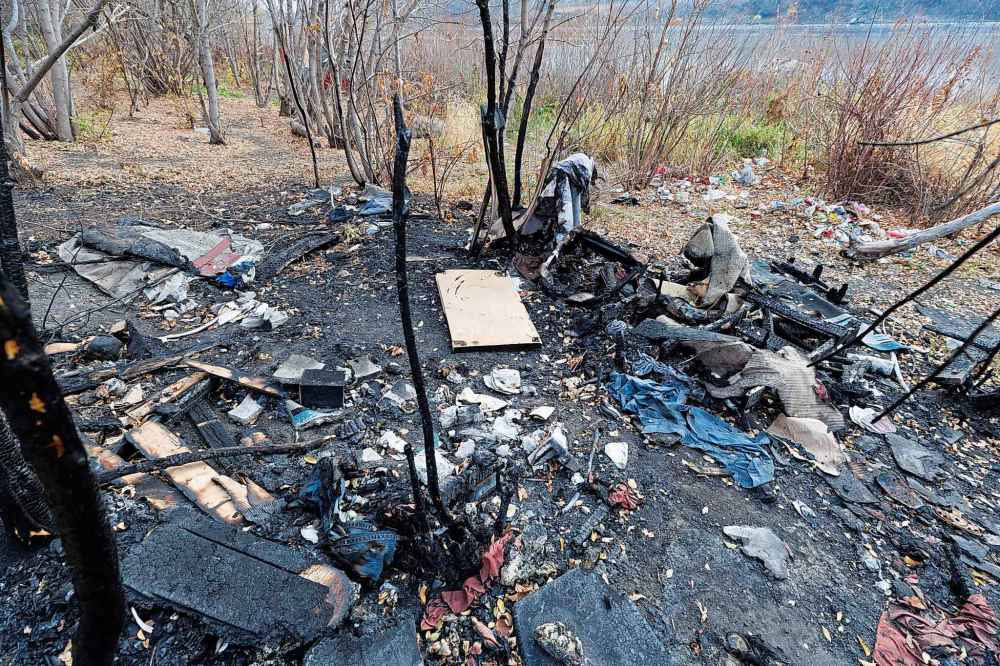Encampments, then and now
Advertisement
Read this article for free:
or
Already have an account? Log in here »
To continue reading, please subscribe:
Monthly Digital Subscription
$0 for the first 4 weeks*
- Enjoy unlimited reading on winnipegfreepress.com
- Read the E-Edition, our digital replica newspaper
- Access News Break, our award-winning app
- Play interactive puzzles
*No charge for 4 weeks then price increases to the regular rate of $19.00 plus GST every four weeks. Offer available to new and qualified returning subscribers only. Cancel any time.
Monthly Digital Subscription
$4.75/week*
- Enjoy unlimited reading on winnipegfreepress.com
- Read the E-Edition, our digital replica newspaper
- Access News Break, our award-winning app
- Play interactive puzzles
*Billed as $19 plus GST every four weeks. Cancel any time.
To continue reading, please subscribe:
Add Free Press access to your Brandon Sun subscription for only an additional
$1 for the first 4 weeks*
*Your next subscription payment will increase by $1.00 and you will be charged $16.99 plus GST for four weeks. After four weeks, your payment will increase to $23.99 plus GST every four weeks.
Read unlimited articles for free today:
or
Already have an account? Log in here »
It was hidden in the brush along the riverbank, in the time before the phrase “homeless camp” became prevalent.
And so, really not that long ago.
I can’t remember why the police were sent to the sprawling, “mixed use” acreage bordering the Red River, but we ended up searching along the bank and quite by accident came upon the camp.

MIKE DEAL / FREE PRESS
And probably that was because no one was meant to find it, that being the whole idea behind living where and how they did.
Possibly they didn’t believe in the service options available, so chose to live “rough,” away from society, not in its face.
No one was home, and there was nothing to identify the occupants, but we got the impression the property owner knew about this encampment.
But better the devil you know.
They didn’t cause problems; i.e. they didn’t steal wire, then burn it for the copper.
In fact, they tended to keep problems away.
They were like the stray cat in the barn, keeping the mouse population at bay.
There was a tacit understanding of the living arrangements, an implicit social contract.
It was the same with transit shelters during my time, where there also was a “social contract.” You would let people sleep in them as long as they were considerate of transit users; otherwise, they were gone.

MIKAELA MACKENZIE / FREE PRESS
There was nothing to suggest the occupants of this camp committed crimes elsewhere, not that no fixed addresses always means criminal tendencies. Fancy addresses can tend to mask criminal tendencies.
But now these encampments are hiding in plain sight, gaining momentum when I was policing the Main Street beat (circa 2018), where they were certainly conspicuous.
Although there was no shortage of options for them in terms of services, it was understandable why some chose to live rough.
Spending considerable time talking to them in and out of their camps, you learned why they did this. Many I already knew from policing experience elsewhere, and many were thoughtful and considerate in how they camped. They cleaned up, mostly behaved, and all things considered, they were “good neighbours.”
But inevitably they attracted the bad actors, who, upon seeing these camps, would move in and proliferate, and were not so thoughtful or considerate; i.e. “there goes the neighbourhood.”
Inevitably, the good people would move away, the newcomers having made the living arrangements untenable.
And many of these newcomers weren’t housed or sheltered because they refused to abide by any social contract elsewhere.
Some actually had housing, and were, essentially, just difficult people.

BROOK JONES/FREE PRESS
So to make excuses for their behaviour would be unfair to those who legitimately have problems.
This didn’t mean that they got their way.
They were given chances, and if they refused to clean up their act, then their camp was gone, and it was done so fairly, and by the book.
Yellow card, red card.
The dynamics haven’t changed since I left in 2020, but it’s certainly gotten worse.
Maybe it’s been allowed to get worse?
So why allow it to spread more, and allow certain elements to push “their way?”
The city tends to earn a lamentable reputation, so why make it worse by allowing camps along major routes, especially when that impacts many who contribute towards the city’s lifeblood?

There’s no denying there’s issues, but problems need managing or they get worse.
When the problems dictate the rules, then there are bigger problems yet.
Similarly you don’t allow encampments near playgrounds either, because there’s no guarantee of problem control, given the dynamics and variable nature of these camps.
There’s no guarantee of a “social contract”, and why would any reasonable person risk children’s safety for anything less than a 100 per cent guarantee?
Which there won’t be.
Just because people present as reasonable in a one-dimensional situation is no guarantee; like when you only see them where and when they want to look good (or how you want them to look).
We are not immune to being fooled.
I recall someone who moved on from the homeless life, had supposedly reformed, and was featured in the local media. I had dealt with them far too many times, because they were bad.

BROOK JONES / FREE PRESS FILES
And despite what was written, I learned from people who actually work in that community that this person hadn’t reformed.
And that someone who had believed their story, giving what little he had for them, was deceived, and suffered badly because of this supposedly “reformed” person.
It’s like writing a bestseller about a path supposedly taken; yet in reality, it wasn’t.
Let’s be realistic, and be fooled less.
Kevin Birkett retired from the Winnipeg Police Service in 2020.











